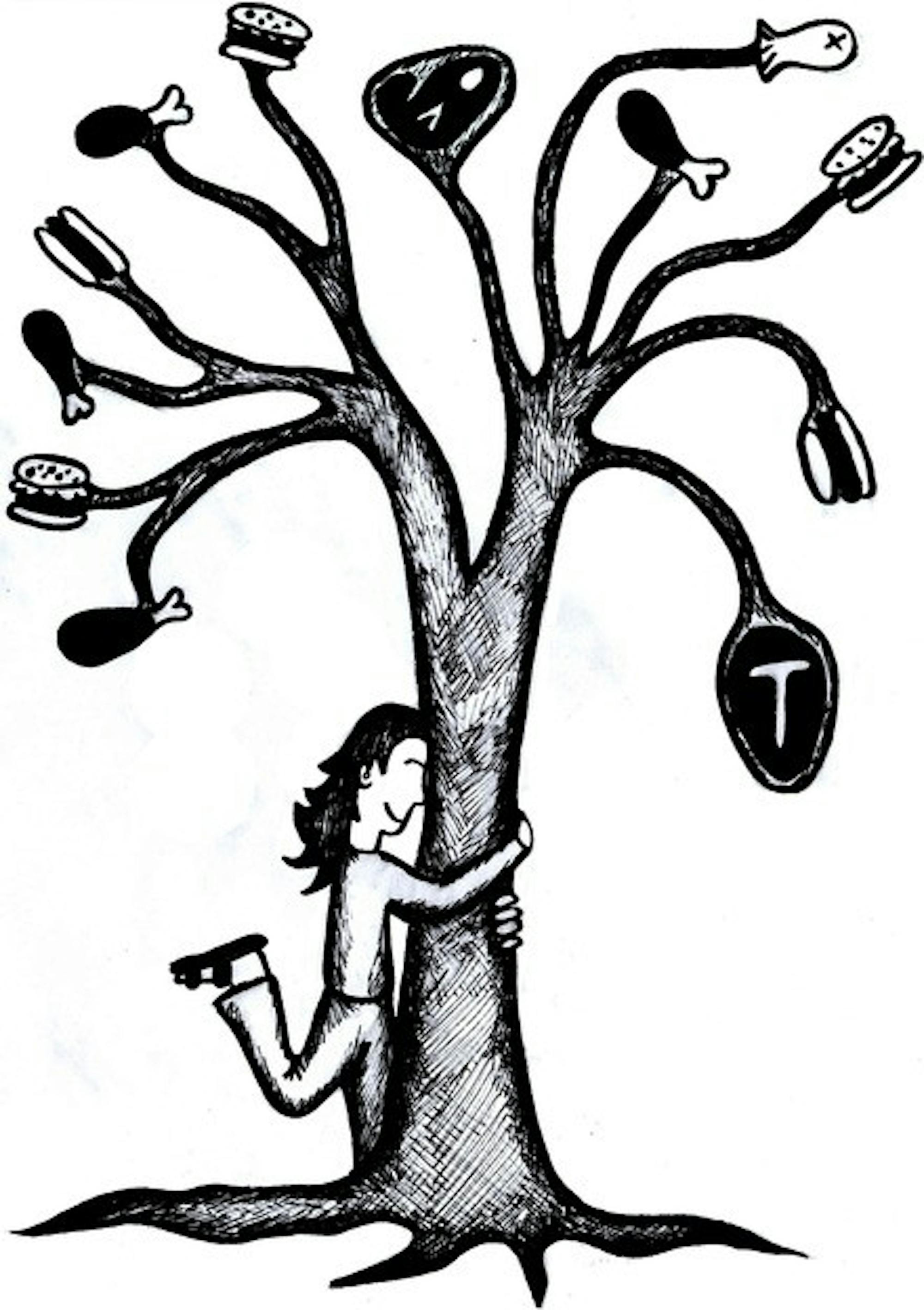Though it might be an exaggeration to argue that all Dartmouth students are quintessential "tree huggers" (leave that to Middlebury, right?), there was indeed overwhelming support on campus for former College President Jim Yong Kim's 2010 commitment to making Dartmouth "the greenest of the Ivies."
But even the most environmentally-conscious students on campus may not be aware of an important fact that could help us all make Dartmouth even greener: food choice matters when it comes to sustainability.
Unfortunately, the facts about the ties between sustainability and food choice suffer from a lack of clarity. What if I were to ask you point-blank which one of these you thought would more significantly reduce your carbon footprint: trading in your SUV for a Prius or going vegan? If you are like most other Dartmouth students, you would probably assume that swapping your gas-guzzler vehicle for something "greener" would have the bigger impact. That's because most people do not realize that the livestock industry is a significant producer of greenhouse gas emissions in the United States. In reality, these two lifestyle changes would result in about the same reduction in personal greenhouse gas emissions.
Even college students who consider themselves very concerned about their carbon footprint state that meat and other animal products constitute part of their typical diet. Dartmouth cares so much about its overall sustainability, yet the institution provides students with a variety of meat options in each dining hall, a choice that has been proven to be relatively unsustainable. Would campus dining services consider ordering less meat as a possible sustainability tactic?
It is difficult to pinpoint one cause for the rift that exists between knowledge and action when it comes to food choice. Based on widespread evidence regarding the pollution caused by the meat industry, reducing campus-wide meat consumption would subsequently reduce Dartmouth's carbon footprint.
But one of the major reasons that Dartmouth Dining Services is hesitant to change the amount of meat served is because they fear resistance from certain groups of students, especially athletes, who are often focused on maintaining their health through high-protein diets. I recently conducted a survey to determine how students prioritize their environmentally-based choices and see if food choice was a factor. Results showed that more than half of college-age students consume red meat, poultry and fish as a regular part of their diet. This is true even of students who consider themselves "very concerned" about their carbon footprints.
With increased education on the environmental benefits of vegetarianism, it is possible that these statistics could change. But it is also important to realize that food is often so tied to someone's identity that a dietary change could be very challenging.
For now, it is important for us to take the initiative to make personally sustainable choices when it comes to food. Of course, even as a vegetarian, I am more than willing to admit that animal products comprise a huge part of America's cultural diet, and giving up meat is often a lot harder than making other sustainable lifestyle changes. Meat-based diets can be extremely healthy, delicious and even sustainable if the animal products are coming from a sustainable source.
In the end, ensuring student awareness about how they can have a positive environmental impact should truly be our goal. Only when the student body is completely educated about the way all of their choices are affecting the environment will Dartmouth be able to become the "greenest Ivy" that it strives to be.




